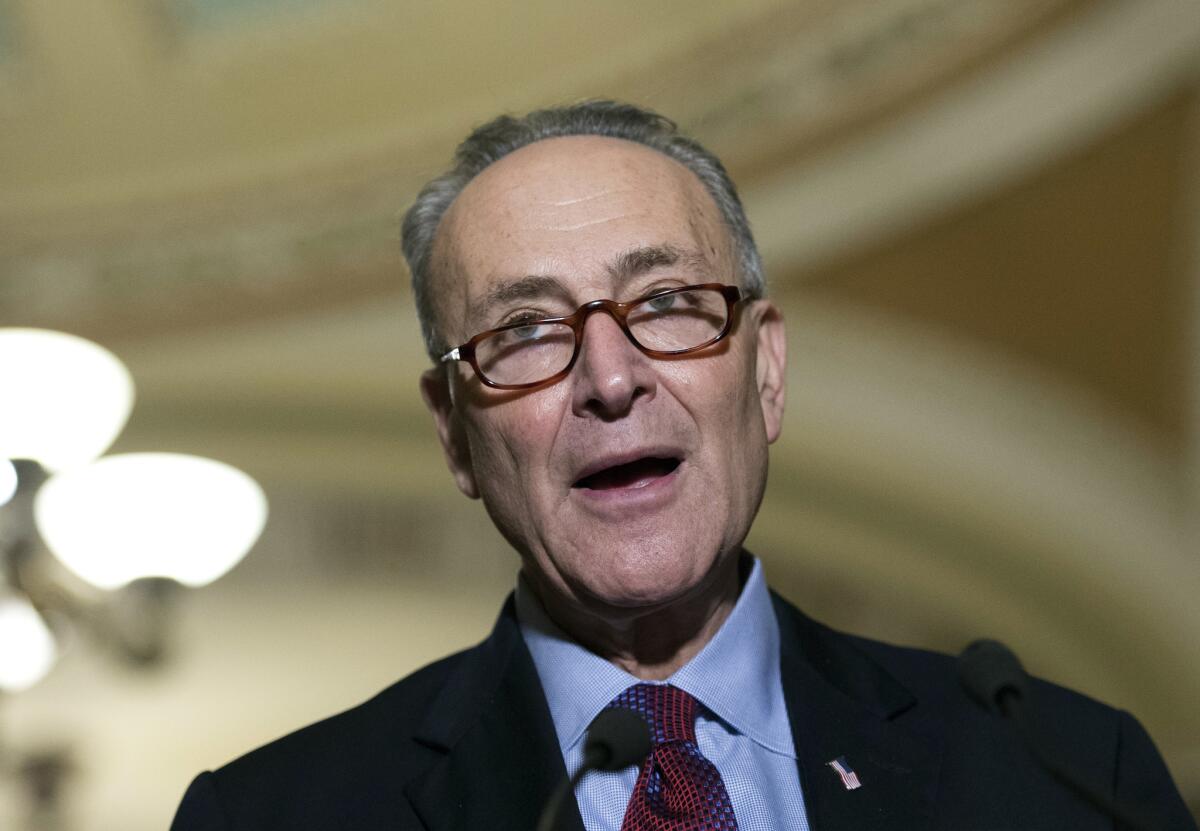Opinion: Small businesses need help now. Congress would rather play politics

- Share via
As hard to believe as it may be, Republicans and Democrats couldn’t agree Thursday to a deal to pump more money into the new Paycheck Protection Program, which doled out $350 billion in forgivable loans to small businesses in less than two weeks. So the program will go dark, most likely until next week, despite the enormous demand from companies struggling to keep their payrolls intact during the COVID-19 pandemic.
Naturally, the finger-pointing got underway immediately:
This reminds me of the blame-slinging whenever there’s a government shutdown. One side accuses the other of obstructionism; the other says the first side is intransigent. The public almost always blames the side that triggered the shutdown by refusing to vote for the deal on the table, regardless of whether the other side is acting in good faith.
Here, the deal offered by Senate Majority Leader Mitch McConnell (R-Ky.) is simply to pour $250 billion more into the PPP, a good program in concept that got off to a rough start and has some fundamental flaws. Most notably, banks have an incentive to extend the loans just to companies with whom they already do business, which skews the aid toward large and more established firms.
Democrats have pushed to improve the program instead of simply throwing more money at it, and that makes sense. But they’ve also demanded that the bill address other major needs, providing billions of dollars for hospitals, food aid and pandemic-ravaged state and local governments.
I don’t blame them for latching on to the only piece of legislation that’s guaranteed to get through Congress right away. The combination of the PPP’s popularity and its dire budget straits gave Democrats some leverage. And it’s not as if Republicans have been concerned about deficit spending; there is broad bipartisan support for the government trying to replace some of the spending that has evaporated in the private sector.
In rural and hard-to-reach areas, postal workers are the only ones who provide regular delivery service.
But this one feels like an overreach. Holding out for improvements in the PPP program to make sure its loans get to all the small employers it was designed to help makes sense. Taking the PPP hostage to help other needy programs, even if they’re desperate for help, seems like a power play unsuited for the moment.
I know, I know — part of the blame here lies squarely at McConnell’s feet, given his refusal to let the Senate legislate. Even now, with so many problems that Congress should be addressing, the majority leader has continued to insist that lawmakers wait and watch how the last big stimulus bill (the $2.2-trillion Coronavirus Aid, Relief and Economic Security Act, which created the PPP) plays out. And with lawmakers largely confined to their homes, the only way bills can move is through unanimous consent, which even the bipartisan CARES Act couldn’t muster.
Yet the public frowns on pols who hold up federal dollars in pursuit of larger agendas, and rightly so. The funding problems at hospitals and state and local governments are real, and Republicans can’t ignore them. But the PPP was helping thousands of businesses, and it’s not helping anyone now. Lawmakers should focus on fixing the program’s flaws and refilling its tank, then get back to work on the next set of issues and the next piece of must-pass legislation.
More to Read
A cure for the common opinion
Get thought-provoking perspectives with our weekly newsletter.
You may occasionally receive promotional content from the Los Angeles Times.











